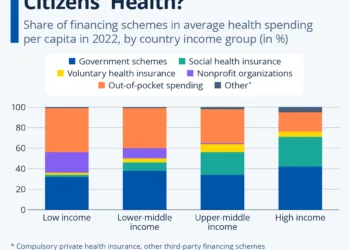Mumbai: The renowned British rock band Coldplay is scheduled to perform in Mumbai next January. Tickets for their highly anticipated concert went on sale last Sunday and sold out in a matter of minutes, leaving many dedicated fans disappointed.
The ticketing website experienced a crash due to overwhelming traffic, prompting the company to announce the addition of a third concert day in India. This strategic move not only alleviated some of the demand but also heightened excitement around the event.
Google Trends indicated two notable peaks in searches for ‘Coldplay’ throughout the day, the first occurring at 12:10 PM and the second around 1:45 PM. The highest search interest originated from Goa, Maharashtra, and Karnataka, respectively. The substantial demand in Goa is likely linked to its vibrant hippie culture and a lifestyle that celebrates global music.
Mumbai, being the city where the concert will take place, naturally accounted for the most traffic in Maharashtra. Dubbed the financial capital of India, Mumbai showcases diverse contrasts and adds significant value to ticket demand.
In Karnataka, the bulk of the searches stemmed from Manipal, a prominent student hub brimming with young music fans.
Almost immediately, memes about the rapid ticket sell-out flooded social media, providing some consolation to fans who missed out by engaging in light-hearted self-deprecating humor.
But what fueled such a remarkable demand for the concert? Several factors contribute to this phenomenon.
Firstly, the surge in the band’s fanbase can largely be attributed to the rise of music streaming platforms and social media. New fans, who have discovered Coldplay online, have cultivated a loyal following. Platforms like YouTube offer glimpses into what a Coldplay concert entails, and these visuals are incredibly appealing to concertgoers.
Intriguingly, the band’s most memorable live performance happened nearly two decades ago during their Twisted Logic Tour in Toronto, Canada.
Secondly, a large segment of the audience consists of young professionals in urban areas with well-paying jobs and minimal financial obligations. The fear of missing out (FOMO) surrounding such events is significant, much like the recent fervor over the iPhone 16 launch and the rush for tickets to Diljit Dosanjh’s concert in India.
The desire to capture a moment at the concert—and share it on Instagram—often overrides rational decision-making, compelling individuals to pursue trends that may not align with their financial health.
This FOMO can be traced back to a colonial legacy and lingering desires for Western experiences. Despite India’s rich musical heritage, showcasing brilliant musicians like sitar virtuoso Ravi Shankar—who collaborated with George Harrison of The Beatles—homegrown artists rarely receive comparable acclaim unless influenced by Western standards.
Furthermore, the Indian economy’s growth plays a crucial role in this unprecedented demand. When Michael Jackson performed in Mumbai in 1996, he attracted 35,000 fans, a record-breaking attendance at the time, coinciding with the liberalization of the Indian economy. Remarkably, the King of Pop’s influence reached even the most remote corners of the country without the aid of smartphones or the Internet.
From 35,000 attendees at Jackson’s concert to an impressive 80,000 at Coldplay’s last performance in Mumbai in 2016, Indians have evolved, willing to splurge for a fleeting moment of joy, social media recognition, or simply out of love for the music.










